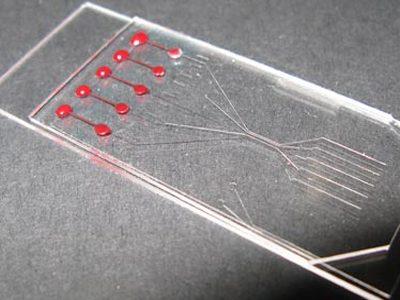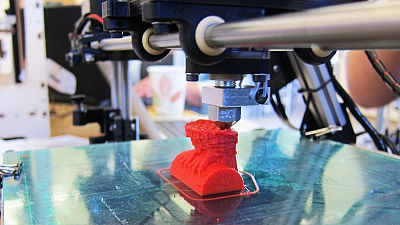A ``vagina chip'' that reproduces the human vaginal environment will be developed, making great progress in research on vaginal flora and diseases

In recent years, attention has been paid to the fact that the bacteria that inhabit the human body affect health conditions, and the bacterial flora that inhabits the vagina of women is also involved in various health conditions. I'm here. Therefore, a team at Harvard University's
Vaginal microbiome-host interactions modeled in a human vagina-on-a-chip | Microbiome | Full Text
https://doi.org/10.1186/s40168-022-01400-1
A breakthrough in bacterial vaginosis treatment for women's health
https://wyss.harvard.edu/news/a-breakthrough-in-bacterial-vaginosis-treatment-for-womens-health/
Scientists invent 1st 'vagina-on-a-chip' | Live Science
https://www.livescience.com/vagina-on-a-chip
Most studies focusing on the bacteria that live in the human body have focused on the intestinal flora , but the vaginal flora, which tends to be neglected compared to the gut, also deserves attention. That's what it is. Bacterial vaginosis , caused by an imbalance in the bacteria in the vagina, afflicts nearly 30% of women of reproductive age and puts them at risk for sexually transmitted diseases, including acquired immunodeficiency syndrome (AIDS) , and premature birth. The total cost of treatment is estimated to be 4.8 billion dollars (about 630 billion yen) annually.
Bacterial vaginosis is commonly treated with antibiotics, but it often recurs and can lead to complications such as pelvic infections and infertility. A bottleneck in the development of therapies to improve the vaginal flora is that the human vaginal flora differs significantly from that of other animals in general. For example, the Lactobacillus genus accounts for more than 70% of human vaginal bacteria, but accounts for less than 1% of other mammalian vaginal bacteria.
Therefore, the Wyss Research Institute team received funding from the Bill & Melinda Gates Foundation , which was established by Microsoft founder Bill Gates and his ex-wife Melinda Gates, to reproduce the cellular environment in the vagina. Developed a chip.
You can see what kind of device the vagina chip is by watching the following movie.
The Vagina Chip: A new preclinical model for research on vaginal epithelium–microbiome interactions-YouTube
Women's vaginal flora are closely related to vaginal health and diseases, but there are challenges in researching therapeutic methods due to the limitation of differences in bacterial flora from animal models. 'Our team's project was to create a human vaginal chip to help develop and test new treatments for bacterial vaginosis,' said co-author Aakanksha Gulati. said.

The developed vagina chip is a small device with a size of only 1 inch (about 2.54 cm). Using a microfluidic organ chip platform developed by Wyss Institute, human vaginal epithelial cells are placed on the upper layer of the polymer chip, and uterine fibroblasts are placed on the other side with a permeable membrane in between to reproduce the structure of the vaginal wall. He said he did.

After five days of incubation, the vaginal tip formed multiple layers of differentiated cells identical to those found in human vaginal tissue. It is reported that when this vagina chip is given the female hormone

After that, when Lactobacillus bacteria, which are often found in healthy human vaginal flora, were introduced into the vagina tip, bacterial colonies were formed and

On the other hand, introduction of bacteria associated with bacterial vaginosis, such as Gardnerella vaginalis, Prevotella vivia, and Atopobium vaginae , into the vaginal tip alleviates problems such as increased pH, damage to vaginal epithelial cells, and increased pro-inflammatory cytokines. It was also confirmed to cause

Gautam Mahajan, lead author of the paper, said: 'The vaginal flora plays an important role in the control of vaginal health and disease, and also has a significant impact on prenatal fetal health.' The Vagina Chip offers an attractive solution for studying host-microbiota interactions and accelerating the development of potential probiotic therapeutics.'
'Despite growing awareness of the importance of women's health care to the health of all humanity, the creation of tools to study human female physiology has lagged behind,' said Don Ingber, founding director of the Wyss Institute. We hope that this new preclinical model will lead not only to the development of new treatments for bacterial vaginosis, but also to new insights into female reproductive health.'
Related Posts:







